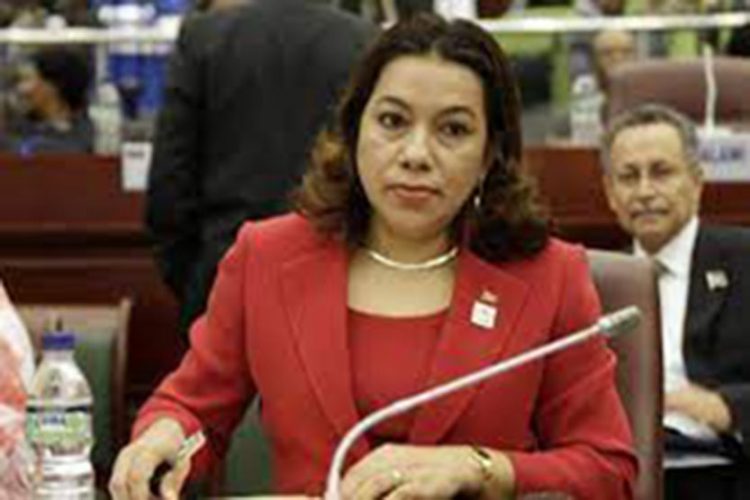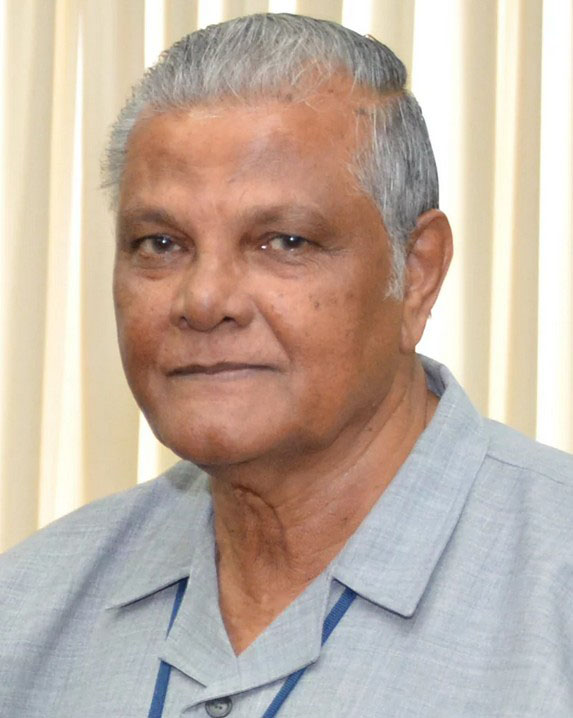President Irfaan Ali yesterday appointed the Natural Resource Fund (NRF) board and named Major General (Rtd) Joe Singh as the Chairman.
In addition to Singh, President Ali also announced two other appointees: Carolyn Rodrigues, Guyana’s Permanent Representative to the United Nations and United Kingdom Labour Member of Parliament David Lammy whose parents are Guyanese.
Earlier, the Private Sector Commission had chosen business executive Ramesh Dookhoo and Parliament had selected former PNC MP Dunstan Barrow for the five-member board.

The PPP/C’s version of the legislation governing the NRF has been heavily criticised. There was no consultation on it and the government rushed it through Parliament.
Ali has appointed three members of the board all on his own without any oversight and critics say that the PPP/C government is seeking full control of all aspects of the administration of oil revenues.
After not having done anything about the previous NRF legislation since taking office in August of 2020, the government suddenly presented a bill on December 16 2021 and despite a petition from civil society and criticisms from various quarters on the lack of consultation the government used its majority to ram the bill through Parliament on December 29th repealing the APNU+AFC NRF Act . The PPP/C’s version was assented to by President Ali the following day.

The legislation allowed the draining of the entire amount in the NRF in the first year of operations – US$607m.
According to Clause 17 of the new NRF Act, “In the fiscal year that this Act comes into operation, notwithstanding the provisions of subsection (1) and of the First Schedule, the ceiling on the amount that may be withdrawn shall be the total balance accumulated in the account …as at the date the Act comes into operation.” For ensuing years there is a formula which guides withdrawals. This formula has drawn criticism.
Section 5 (1) of the NRF Act provides for a Board of Directors (BoD) of the Fund comprising of not less than three (3) and not more than five (5) members, who shall be appointed by the President, inclusive of a chairperson.
According to Section 5 (2), these Directors are selected from persons who have wide experience in legal, financial, business or administrative matters, one of whom shall be nominated by the National Assembly and one of whom shall be a representative of the private sector.
Questions will likely be raised about whether it is appropriate for a sitting member of the UK legislature to be on this Fund. This MP could be subject to lobbying in the UK and will also have an input in legislation that may be tabled in the British Parliament pertaining to oil and gas matters.
The directors of the NRF board will be responsible for “overall management of the fund, reviewing and approving the policies of the fund, monitoring the performance of the fund; ensuring compliance with the approved policies of the fund; exercising general oversight of all aspects of the operations of the fund and ensuring that the fund is managed in compliance with this Act and all other applicable laws,” the Act states.
Other responsibilities stated that the BoD of NRF shall “be responsible for preparing the investment mandate” and include the items specified such as “directions relating to the management of credit, liquidity, operational, currency, market and other financial risks; directions regarding ethical investments, including policies standards and procedures for avoiding prejudice to Guyana’s reputation as a responsible member of the world community.”
The directors will also guide on the percentage of the fund that shall be invested in an eligible asset class and have responsibility for “relevant indices for investments in bills and eligible commodities; the relevant index or indices for investments in eligible equities” from those indices listed under passive investment management.
The Board’s responsibilities also include planning directions in relation to how frequently the Fund shall be balanced and assessing the maximum acceptable tracking error between the relevant index and the relevant eligible asset class.
The Minister of Finance can also delegate duties to the Board within the realms of the Act as it states that a part of their responsibilities would be “such other direction, not inconsistent with this Act, as the Minister deems fit.”
And as they execute their duties, the Board has to “report to the Minister and shall provide such information and reports as the Minister may require.”
When the Board prepares or amends the Investment Mandate, it is to “seek the advice of the Investment Committee,” a group that will be formed to guide the maximising of returns on oil monies earned for Guyana.
The Bank of Guyana shall be responsible for the operational management of the Fund, in accordance with the investment mandate and the operational agreement but a seven-person Investment Committee will be advising the Board of Directors on areas of investments.
The Bill gives guidance on ceilings and floors for the investment of the Fund for the purpose of long-term savings in the Second Schedule.









